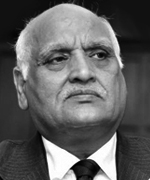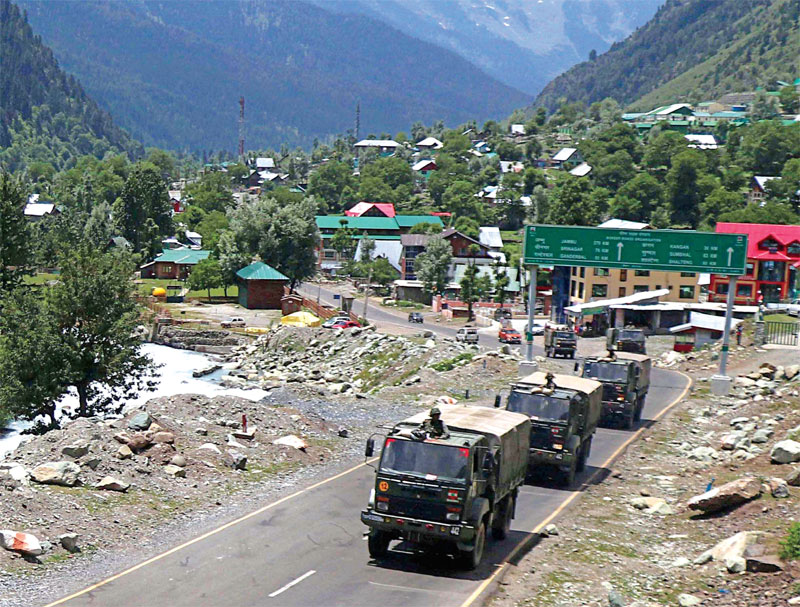With the crisis in Ladakh, the armed forces need to snap out of Pakistan-centric proxy war mindset and look at China
 Maj. Gen. Raj Mehta (retd)
Maj. Gen. Raj Mehta (retd)
Only if there are battles, there are opportunities... Do these startling words from a President Xi Jinping’s interview in summer 2000 when he was aged 47 and governor in the Fujian Province give the reader an authentic and unfiltered picture of the man who is now undisputed Supreme Leader of China? Do they indicate that China has learnt no lessons from the past? Do they indicate that China is involved in strategic overreach, this time with India as its objective? Do the words indicate that China’s Middle Kingdom phobia continues to be reflected in its brazen territorial aggrandizement and aggressive diplomacy?
More importantly, after seeing India unexpectedly and boldly stand up to its coercive forward push, do they indicate that humiliated China is biding its time and spoiling for a fight? Another question demands an answer. Will a future Sino-Indian war be machine (therefore Artificial Intelligence (AI) led as opposed to manpower led? These grim possibilities need exploration even as the two antagonists are for the first time since Tulung La 45 years ago, locked in an alpine dance of death with global fallouts.
***
In 1979, the then Chinese vice premier, Deng Xiaoping, had complained to US President Jimmy Carter just before China’s ill-fated intrusion into Vietnam: “The little child is getting naughty; it’s time he got spanked.” As it transpired, the battle-hardened Vietnamese imposed severe humiliation on the PLA besides exposing their glaring weaknesses in conducting mechanised warfare in hilly terrain… this, despite facing numerically weaker forces equipped with vintage warfighting equipment. The Vietnamese Border Guards routed the frontline PLA soldiery despite suffering heavy casualties themselves.

Before we proceed further, a word of caution here... emerging expert opinion appears to suggest that the PLA is evolving rapidly and, within a few years—a decade at the outset—will emerge as an Artificial Intelligence (AI) led force where machines of varying AI capability will engage in effective combat fighting and correspondingly reduce PLA’s dependence on manpower. While there is merit in this supposition because China is clearly the AI world leader with even the United States struggling to catch up, current opinion maintains that transition from man-machine interface to machine-man interface will take time. Therefore, what remains important is how effective is the PLA in its current configuration and whether it feels confident to take India on any which way and drive home its strategic intent, given its historic predilection of teaching its opponents lessons.
To examine if China is investing in a Revolution in Military Affairs (RMA) in AI-led warfighting where machines will increasingly command/ control battle space, let us briefly scan where China is 41 years after Vietnam taught China lessons in traditional warfighting.
Let’s accept ab initio that China’s situation is starkly different today. Even as the quality of soldiery remains ambiguous, President Xi Jinping has recently assumed the role of supreme leader. This happened after Xi claimed success against Covid-19 in April 2020; thereafter proceeded to destroy any vestige of opposition against him. The 15 July 2020 issue of the Chinese Communist Party journal Qiushi (Seeking Truth) validated his Supreme Leader position by demanding unstinting loyalty by all for life for him by name.
In his little-known summer 2000 interview titled ‘Xi Jinping: My road into politics’ to the Editor of the Chinese magazine Zhonghua Ernü, Yang Xiaohuai and published by the Danish newspaper Politiken and the Nordic Institute of Asian Studies in Dutch and English on 28 Oct 2012 (translation by Sinologists Carsten Boyer Thøgersen and Susanne Posborg), readers get an open, unfiltered view of China’s supreme leader. 20 years back, Xi had emphasised persistence, patience; a strong self-belief, focus and steely resolve in achieving his long term goal which we now know is celebrating the 21st century as China’s century. He said: “If you want to become a General you must be able to win a battle... Only if there are battles, there are opportunities. One can say that only if a chance should arise, and, you make use of it right away, you will succeed.” Read bluntly, Xi implied decisive forward movement in all he has undertaken.
In the case of India, analysts surmise that Xi saw his ‘battle’ chance when the black swan of Covid-19 hit the world (the jury is still out whether it is Wuhan created or human error), Xi saw an opportunity and acted swiftly in his aggressive Taiwan posturing; Hong Kong; the South China Sea claims and certainly in Bhutan and India. With India distracted in coping with Covid-19 and its defence forces perhaps momentarily off balance in coping with strange new challenges that were emerging beyond its Pakistan/ LC obsession, the Chinese President—also C-in-C military forces—ordered creeping forward by PLA to the 1959 LAC positions under the deceptive ploy of conducting scheduled military exercises in Tibetan highlands till a startled India reacted and brought that PLA territorial aggrandizement to a halt.
Commencing May 2020, spirited Indian reactions at Pangong Tso, in North Sikkim and then at Galwan on night 15/16 June 2020 gave the PLA a bloody nose. Primitive spiked-club assaults were responded in kind with value-added and reported worldwide as a pronounced Chinese loss of face. Later, on 29-30 August 2020, two unprecedented tactical actions by Indian troops numbed the aggro-led, bullying and overconfident, mindset-ridden PLA. The Indians, using refined alpine mountain skills occupied the lofty Pangong Range heights of Fingers 3 and 4 on the north bank of Pangong Tso—thereby overlooking all Chinese north bank deployments till Finger 8. This bold move neutralised the Chinese advantage gained in April-May 2020 over which Indian media/ think-tanks had expressed much angst.
You must be logged in to view this content.

